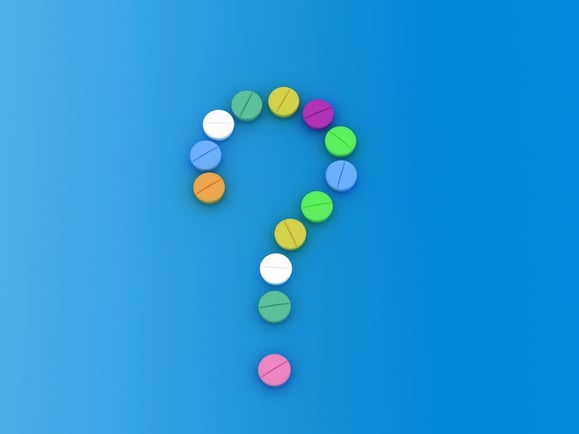Adverse Drug Reactions: What to Know

Adverse drug reactions (ADR) cause between 5-7% of all hospitalizations, and result in over 140,000 fatalities annually. These staggering statistics highlight why it is so important to understand what ADRs are and what can be done about them.
Adverse drug reactions, an undesirable reaction to a drug, are an important component of the broad term “Adverse drug events” and can be boiled down to two types: common and/or predictable reactions to medications and rare and mostly unpredictable reactions to medications.
Common and/or predictable reactions to medications account for about 90% of all ADRs, and include things like basic drug side effects. Symptoms of drug side effects can include nausea, vomiting, headache, and GI issues related to antibiotics.
Rare and mostly unpredictable reactions to medications account for about 10% of all ADRs and include things like drug allergy reactions. Drug allergy reactions are a result of the body’s immune system reacting to a drug as if it were a dangerous invader. Symptoms of drug allergies can include skin rash, swelling or, in severe cases, trouble breathing.
Ways to prevent Adverse Drug Events and minimize Adverse Drug Reactions include:
- Stay informed about your medications. Know what to watch for and when to contact your health care provider. One way to do this is by reviewing the information that comes with your specific medications. You can also use valuable tools like a patient portal, which can contain medication look-up databases and copies of your medication history.
- Avoid drug misuse and take medication appropriately. Carefully follow all medication instructions (i.e. avoiding alcohol or operating machinery) and the instructions your health care provider gives you. Your provider may give you instructions on starting at a low dosage and increasing slowly in an effort to reduce the chance of having side effects. Do not use more of a medication than you are prescribed as this may lead to an adverse drug event.
- Be careful about mixing medications. Some medications do not mix well with other medications or herbal products. Tell your health care providers about all of the medicines you are taking, including non-prescription, or over-the-counter medicines, herbal products, and any other drugs.
- If you have a true drug allergy, always wear a medic alert bracelet or necklace explaining your drug allergy.
As new drugs are introduced and side effects are realized, adverse drug reaction reporting will continue to improve. Medication consumers should continue to work with their health care providers to discuss any ADR or ADE they themselves or a family member have encountered. The Food and Drug Administration (FDA) have also set up a program, MedWatch, which allows medication users to report online or over the phone of any serious reactions or product quality problems.
Other Posts You Might Be Interested In
Subscribe to email updates
Stay up-to-date on what's happening at this blog and get additional content about the benefits of subscribing.


